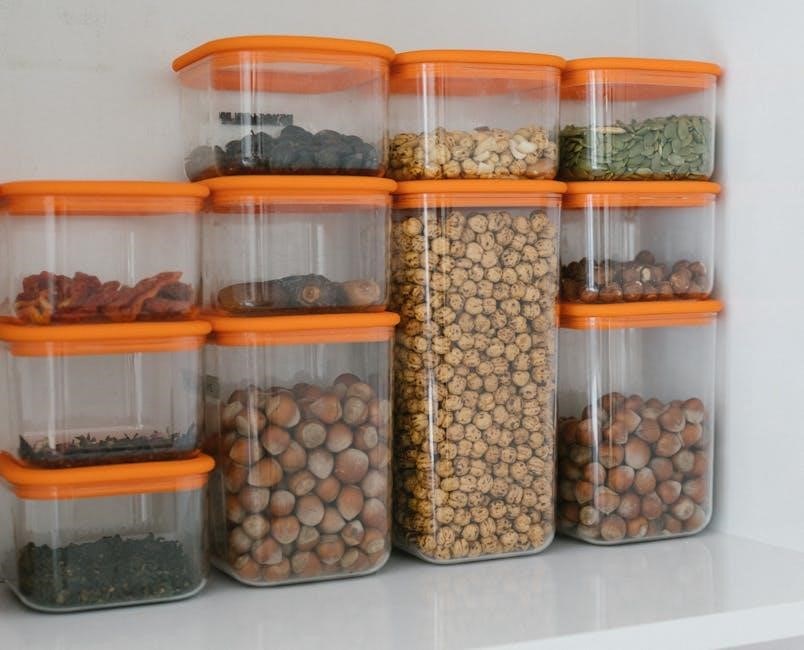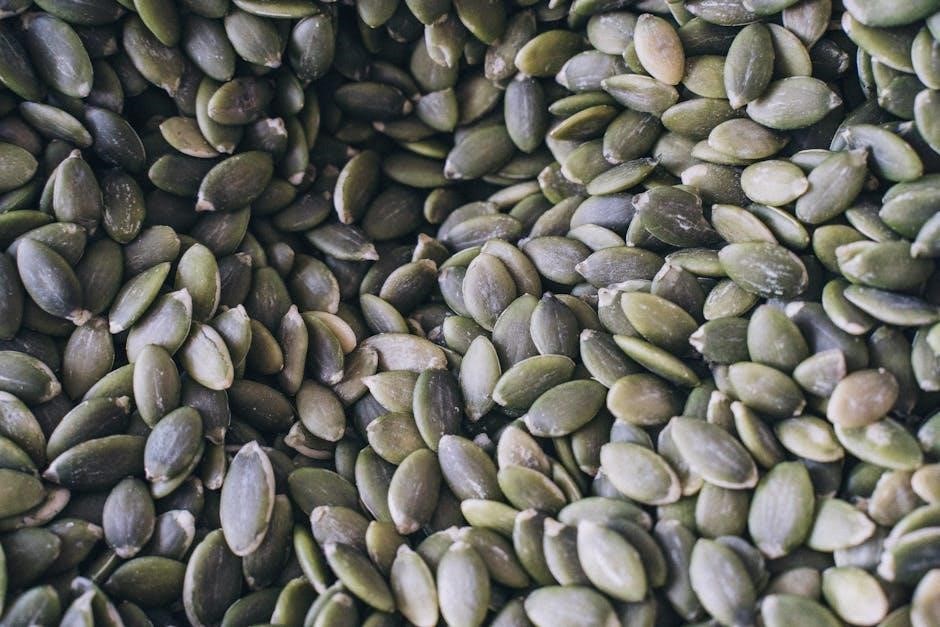Acid reflux, commonly known as heartburn, occurs when stomach acid flows back into the esophagus, causing discomfort. Gastroesophageal reflux disease (GERD) is a chronic form of this condition. A well-structured acid reflux diet plan can significantly alleviate symptoms and improve quality of life. This guide provides a comprehensive 7-day meal plan and lifestyle modifications to help manage GERD effectively.
Understanding GERD and Its Symptoms
GERD stands for gastroesophageal reflux disease, a chronic condition where stomach acid frequently flows back into the esophagus, causing discomfort. Common symptoms include heartburn, chest pain, difficulty swallowing, and regurgitation of food. If left unmanaged, GERD can lead to complications like esophageal inflammation or narrowing. Identifying triggers and adopting a tailored acid reflux diet plan are essential steps in managing symptoms and improving quality of life.
The Impact of Diet on Managing Symptoms
Diet plays a crucial role in managing GERD symptoms. Certain foods can trigger acid reflux by relaxing the lower esophageal sphincter or increasing stomach acid production. A tailored acid reflux diet plan focuses on avoiding triggers like citrus fruits, chocolate, and spicy foods while incorporating low-acid, high-fiber options. This dietary approach can significantly reduce symptom frequency and severity, promoting long-term digestive health and comfort.
Benefits of a GERD Diet Plan
A GERD diet plan helps reduce symptoms like heartburn and discomfort while improving esophageal motility and overall digestive health, promoting long-term relief and well-being.
Reduction of Symptoms and Discomfort
Adopting a GERD diet plan significantly reduces heartburn and discomfort by avoiding trigger foods like citrus fruits and chocolate. This approach minimizes acid production and esophageal irritation, providing relief and improving quality of life. Small, frequent meals and upright posture after eating further enhance symptom management, helping to alleviate discomfort effectively.
Improvement in Esophageal Motility
A GERD diet plan emphasizes high-fiber foods, such as whole grains, fruits, and vegetables, which strengthen the lower esophageal sphincter. This improves esophageal motility, reducing acid reflux episodes. Avoiding trigger foods like spicy or fatty items minimizes irritation, while non-carbonated drinks prevent stomach pressure. These dietary adjustments help restore normal digestive function and reduce discomfort associated with poor motility.
Overall Digestive Health
A GERD diet plan promotes overall digestive health by encouraging a balanced gut and regular digestion. High-fiber foods, lean proteins, and non-carbonated beverages support a healthy digestive system. Avoiding triggers like spicy or fatty foods reduces irritation, fostering a more stable digestive environment. This approach not only manages acid reflux but also enhances overall well-being and nutrient absorption.

Foods to Avoid
Citrus fruits, juices, chocolate, caffeinated beverages, garlic, onions, and spicy foods can trigger acid reflux. These items relax the esophagus or increase stomach acid, worsening symptoms.
Citrus Fruits and Juices
Citrus fruits like oranges, grapefruits, and lemons, along with their juices, are highly acidic. Consuming them can relax the lower esophageal sphincter, allowing stomach acid to flow back into the esophagus, worsening heartburn and discomfort. It’s best to avoid these items or consume them in very small quantities to prevent triggering acid reflux symptoms.
Chocolate and Caffeinated Beverages
Chocolate and caffeinated beverages, such as coffee, tea, and soda, can trigger acid reflux symptoms. They relax the lower esophageal sphincter, allowing stomach acid to flow upward. Caffeine also increases stomach acid production, worsening heartburn. Reducing or avoiding these items can help alleviate discomfort and improve digestion for those following an acid reflux diet plan.
Garlic, Onions, and Spicy Foods
Garlic, onions, and spicy foods can irritate the esophagus and worsen acid reflux symptoms. They may relax the lower esophageal sphincter or delay stomach emptying, increasing discomfort. Incorporating these foods in a GERD diet plan can exacerbate heartburn and should be consumed in moderation or avoided to maintain symptom relief and overall digestive health.

Foods to Include
Incorporate low-acid foods, high-fiber options, and non-carbonated drinks to help manage acid reflux symptoms. These choices support digestive health and reduce discomfort.
Low-Acid Foods
Incorporating low-acid foods such as bananas, melons, and green vegetables can help minimize acid reflux symptoms. These foods are gentle on the stomach and reduce inflammation. Lean proteins like poultry and fish are also beneficial. Whole grains and non-citrus fruits like apples and pears are excellent choices. Avoiding acidic triggers while adding these foods can create a balanced diet that alleviates discomfort and supports digestive health effectively.
High-Fiber Options
High-fiber foods such as oatmeal, whole grains, and vegetables play a crucial role in managing acid reflux. Fiber aids digestion, preventing acid buildup. Incorporate foods like broccoli, carrots, and legumes to improve esophageal motility. A diet rich in fiber can reduce symptoms and promote overall digestive well-being, supporting a healthy GERD diet plan by naturally alleviating discomfort and enhancing gut function effectively.
Non-Carbonated Drinks
Opting for non-carbonated beverages is essential in a GERD-friendly diet. Drinks like water, herbal teas, and fresh vegetable juices are ideal. They help maintain hydration without triggering acid reflux. Avoid fizzy drinks, as carbonation can relax the lower esophageal sphincter, worsening symptoms. Incorporating these beverages supports a balanced acid reflux diet plan and aids in reducing discomfort and promoting digestive health naturally and effectively every day.

Lifestyle Changes
Lifestyle changes play a crucial role in managing GERD symptoms. Maintaining a healthy weight, avoiding tight clothing, eating smaller meals, and refraining from lying down after meals can significantly reduce discomfort.
Importance of Weight Loss
Weight loss is essential for managing GERD symptoms, especially in individuals with obesity. Excess weight can increase pressure on the stomach, causing acid reflux. Even a moderate reduction in body weight can significantly alleviate symptoms and improve esophageal function. Studies show that weight loss is comparable to medication in reducing heartburn frequency and severity, making it a critical component of a GERD management plan.
Tips for Weight Loss
Effective weight loss for GERD management involves adopting sustainable habits. Focus on portion control, eating smaller, frequent meals, and avoiding trigger foods. Incorporate low-intensity exercises like walking and strength training to burn calories without overexertion. Track your progress and maintain a balanced diet rich in fiber and low in fats. Gradual weight loss of 1-2 pounds per week is ideal for long-term success.
Posture and Eating Habits
Optimal posture and mindful eating habits can significantly reduce GERD symptoms. Sit upright during meals and avoid lying down for at least 2-3 hours after eating. Eating slowly and chewing thoroughly can prevent overeating and reduce pressure on the lower esophageal sphincter. Avoid tight clothing that may constrict the abdomen and worsen reflux. Elevating the head of your bed by 6-8 inches can also help prevent nighttime symptoms.

Meal Plan Structure
A 7-day GERD diet plan provides a structured approach to balanced meals, snacks, and portion control. It includes a downloadable PDF for easy reference and tracking to manage symptoms effectively.
7-Day Meal Plan Overview
This 7-day GERD meal plan offers a variety of balanced, low-acid meals and snacks designed to alleviate symptoms. Each day includes breakfast, lunch, dinner, and snacks, focusing on high-fiber, non-citrus, and gentle-on-the-stomach foods. The plan totals approximately 2,000 calories daily and is customizable to suit individual preferences. A downloadable PDF version is available for easy printing and meal prepping, ensuring a hassle-free approach to managing acid reflux symptoms effectively.
Timing and Portion Control
Eating smaller, frequent meals throughout the day can help manage acid reflux symptoms. Finish your last meal 2-3 hours before bedtime to prevent nighttime discomfort. Avoid overeating and opt for balanced portions. Staying upright after meals and drinking fluids between meals, rather than during, can also reduce symptoms. Proper timing and portion control are key to a successful GERD diet plan.

Grocery List
A GERD-friendly grocery list includes low-acid foods like apples, leafy greens, whole grains, lean proteins, and non-carbonated drinks. These items help manage symptoms effectively and promote healing.
Essential Items for a GERD Diet
Incorporate low-acid fruits like bananas and apples, along with vegetables such as spinach and carrots. Whole grains, lean proteins, and healthy fats are also crucial. Non-carbonated beverages like herbal teas and water are recommended. Avoid citrus fruits, chocolate, and spicy foods. These items help reduce inflammation and promote a balanced digestive system, essential for managing GERD symptoms effectively.

Common Mistakes to Avoid
Overeating, late-night meals, and inadequate fluid intake can worsen GERD symptoms. Avoiding these habits helps reduce discomfort and supports long-term digestive health effectively.
Overeating and Late-Night Meals
Overeating can strain the lower esophageal sphincter, worsening acid reflux. Late-night meals delay digestion, allowing stomach acid to flow back into the esophagus. Eating smaller, balanced meals and avoiding heavy foods close to bedtime can reduce symptoms. Additionally, maintaining a healthy weight and waiting at least 2-3 hours after eating before lying down are crucial for managing GERD effectively and preventing nighttime discomfort.
Inadequate Fluid Intake
Inadequate fluid intake can impair digestion and worsen acid reflux symptoms. Proper hydration aids in diluting stomach acid and promoting smooth digestion. Drinking water between meals, rather than during, helps prevent overwhelming the stomach. Aim for 8-10 glasses of water daily, excluding carbonated and caffeinated beverages, to support digestive health and reduce GERD discomfort effectively and naturally.

Monitoring Progress
Monitoring progress involves tracking symptoms, adjusting the diet, and maintaining a journal. Regularly assessing improvements helps tailor the plan for better symptom management and long-term relief.
Tracking Symptoms and Adjustments
Tracking symptoms daily helps identify triggers and monitor improvements. Keep a journal to record heartburn frequency, severity, and food intake. Adjust the diet plan based on observations, eliminating foods that worsen symptoms. Regularly review progress to refine the plan and ensure long-term relief. Celebrate small victories and stay motivated to maintain a symptom-free lifestyle.

Long-Term Maintenance
Maintaining a healthy diet and lifestyle is crucial for managing GERD long-term. Regular health check-ups and consistent adherence to dietary adjustments ensure sustained relief and prevent symptom recurrence.
Sustaining a Healthy Diet
Maintaining a GERD-friendly diet long-term requires consistent awareness of trigger foods and portion control. Incorporating high-fiber, low-acid foods supports symptom relief and improves esophageal function. Regularly reviewing and adjusting your diet plan ensures sustained benefits and prevents symptom recurrence, promoting overall digestive well-being. This approach, combined with lifestyle changes, helps create a balanced and enduring management strategy for acid reflux.
Regular Health Check-Ups
Scheduling regular health check-ups is crucial for managing GERD effectively. Consult your healthcare provider to monitor symptom progress and adjust treatments as needed. Routine evaluations ensure that dietary changes and lifestyle modifications are working optimally. This proactive approach helps prevent complications and maintains long-term digestive health, ensuring a reflux-free life with continued medical guidance and support.
A well-structured acid reflux diet plan can significantly reduce symptoms, improve digestion, and enhance overall well-being. Consistency and monitoring are key to long-term relief and a healthier lifestyle.

Be First to Comment